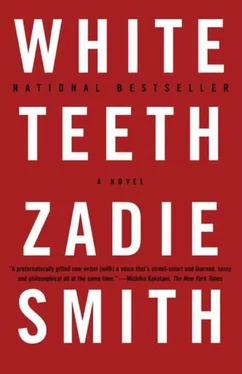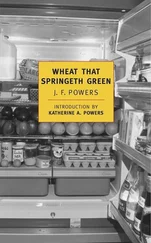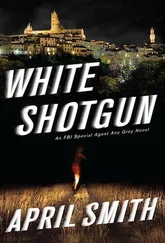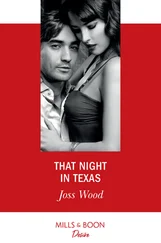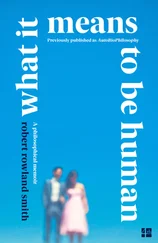Samad, who had an equally melodramatic nature when prompted, yanked upon the freezer and pulled out a mountain of meat which he piled in the middle of the room. His mother worked through the night preparing meat for her family, he said. His mother did not, he said, spend the household money, as Alsana did, on prepared meals, yoghurts and tinned spaghetti.
Alsana punched him full square in the stomach.
‘Samad Iqbal the traditionalist! Why don’t I just squat in the street over a bucket and wash clothes? Eh? In fact, what about my clothes? Edible?’
As Samad clutched his winded belly, there in the kitchen she ripped to shreds every stitch she had on and added them to the pile of frozen lamb, spare cuts from the restaurant. She stood naked before him for a moment, the yet small mound of her pregnancy in full view, then put on a long, brown coat and left the house.
But all the same, she reflected, slamming the door behind her, it was true: it was a nice area; she couldn’t deny it as she stormed towards the high road, avoiding trees where previously, in Whitechapel, she avoided flung-out mattresses and the homeless. It would be good for the child, she couldn’t deny it. Alsana had a deep-seated belief that living near green spaces was morally beneficial to the young, and there to her right was Gladstone Park, a sweeping horizon of green named after the Liberal Prime Minister (Alsana was from a respected old Bengal family and had read her English History; but look at her now; if they could see what depths…!), and in the Liberal tradition it was a park without fences, unlike the more affluent Queens Park (Victoria’s), with its pointed metal railings. Willesden was not as pretty as Queens Park, but it was a nice area. No denying it. Not like Whitechapel, where that madman E-knock someoneoranother gave a speech that forced them into the basement while kids broke the windows with their steel-capped boots. Rivers of blood silly-billy nonsense. Now she was pregnant she needed a little bit of peace and quiet. Though it was the same here in a way: they all looked at her strangely, this tiny Indian woman stalking the high road in a mackintosh, her plentiful hair flying every which way. Mali’s Kebabs , Mr Cheungs , Raj’s , Malkovich Bakeries – she read the new, unfamiliar signs as she passed. She was shrewd. She saw what this was. ‘Liberal? Hosh-kosh nonsense!’ No one was more liberal than anyone else anywhere anyway. It was only that here, in Willesden, there was just not enough of any one thing to gang up against any other thing and send it running to the cellars while windows were smashed.
‘Survival is what it is about!’ she concluded out loud (she spoke to her baby; she liked to give it one sensible thought a day), making the bell above Crazy Shoes tinkle as she opened the door. Her niece Neena worked there. It was an old-fashioned cobblers. Neena fixed heels back on to stilettos.
‘Alsana, you look like dog shit,’ Neena called over in Bengali. ‘What is that horrible coat?’
‘It’s none of your business, is what it is,’ replied Alsana in English. ‘I came to collect my husband’s shoes, not to chit-chat with Niece-of-Shame.’
Neena was used to this, and now that Alsana had moved to Willesden there would only be more of it. It used to come in longer sentences, i.e., You have brought nothing but shame … or My niece, the shameful … but now because Alsana no longer had the time or energy to summon up the necessary shock each time, it had become abridged to Niece-of-Shame, an all-purpose tag that summed up the general feeling.
‘See these soles?’ said Neena, moving one of her dyed blonde bangs from her eye, taking Samad’s shoes off a shelf and handing Alsana the little blue ticket. ‘They were so worn through, Auntie Alsi, I had to reconstruct them from the very base. From the base! What does he do in them? Run marathons?’
‘He works,’ replied Alsana tersely. ‘And prays,’ she added, for she liked to show people her respectability, and besides she was really very traditional, very religious, lacking nothing except the faith. ‘And don’t call me Auntie. I am two years older than you.’ Alsana swept the shoes into a plastic carrier bag and turned to leave.
‘I thought that praying was done on people’s knees,’ said Neena, laughing lightly.
‘Both, both, asleep, waking, walking,’ snapped Alsana, as she passed under the tinkly bell once more. ‘We are never out of sight of the Creator.’
‘How’s the new house, then?’ Neena called after her.
But she had gone; Neena shook her head and sighed as she watched her young aunt disappear down the road like a little brown bullet. Alsana. She was young and old at the same time, Neena reflected. She acted so sensible, so straight-down-the-line in her long sensible coat, but you got the feeling…
‘Oi! Miss! There’s shoes back here that need your attention,’ came a voice from the store room.
‘Keep your tits on,’ said Neena.
At the corner of the road Alsana popped behind the post office and removed her pinchy sandals in favour of Samad’s shoes. (It was an oddity about Alsana. She was small but her feet were enormous. You felt instinctively when looking at her that she had yet more growing to do.) In seconds she whipped her hair into an efficient bun, and wrapped her coat tighter around her to keep out the wind. Then she set off up past the library and up a long green road she had never walked along before. ‘Survival is all, little Iqbal,’ she said to her bump once more. ‘Survival.’
Halfway up the road, she crossed the street, intending to turn left and circle round back to the high road. But then, as she approached a large white van open at the back and looked enviously at the furniture that was piled up in it, she recognized the black lady who was leaning over a garden fence, looking dreamily into the air towards the library (half dressed, though! A lurid purple vest, underwear almost), as if her future lay in that direction. Before she could cross over once more to avoid her, Alsana found herself spotted.
‘Mrs Iqbal!’ said Clara, waving her over.
‘Mrs Jones.’
Both women were momentarily embarrassed at what they were wearing, but, looking at the other, gained confidence.
‘Now, isn’t that strange, Archie?’ said Clara, filling in all her consonants. She was already some way to losing her accent and she liked to work on it at every opportunity.
‘What? What?’ said Archie, who was in the hallway, becoming exasperated with a bookcase.
‘It’s just that we were just talking about you – you’re coming to dinner tonight, yes?’
Black people are often friendly, thought Alsana, smiling at Clara, and adding this fact subconsciously to the short ‘pro’ side of the pro and con list she had on the black girl. From every minority she disliked, Alsana liked to single out one specimen for spiritual forgiveness. From Whitechapel, there had been many such redeemed characters. Mr Van, the Chinese chiropodist, Mr Segal, a Jewish carpenter, Rosie, a Dominican woman who continuously popped round, much to Alsana’s grievance and delight, in an attempt to convert her into a Seventh-Day Adventist – all these lucky individuals were given Alsana’s golden reprieve and magically extrapolated from their skins like Indian tigers.
‘Yes, Samad mentioned it,’ said Alsana, though Samad had not.
Clara beamed. ‘Good… good!’
There was a pause. Neither could think of what to say. They both looked downwards.
‘Those shoes look truly comfortable,’ said Clara.
‘Yes. Yes. I do a lot of walking, you see. And with this – ’ She patted her stomach.
‘You’re pregnant?’ said Clara surprised. ‘Pickney, you so small me kyant even see it.’
Читать дальше
